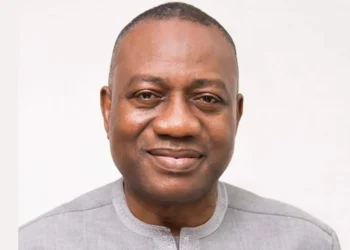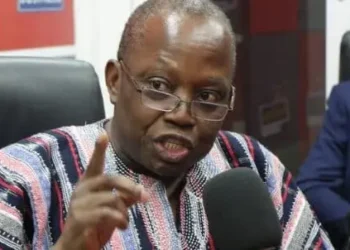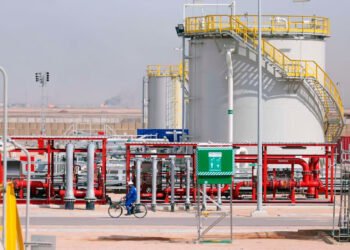The global democratic order is facing a crisis not seen in decades. According to the 2025 Democracy Report from the University of Gothenburg’s Varieties of Democracy (V-Dem) Institute, autocracies now outnumber democracies worldwide.
Nearly three-quarters of the world’s people live under authoritarian rule, the highest proportion since 1978. This is not just a statistic; it signals a deep loss of faith in democracy and shows its limits in meeting human and societal needs.
One key reason for this decline is growing disappointment with democracy itself. In Africa, West Africa, and other places, many citizens see democracy as a foreign project imposed from outside rather than a system designed to solve local problems.
Interventions in Afghanistan, Libya, and Iran show what scholars call the weaponization of democracy: exporting democratic ideals under the banner of peacebuilding and state reconstruction. In reality, these interventions often produced instability, human rights abuses, and weak governance.
In Libya, NATO’s 2011 intervention toppled Gaddafi but left behind armed groups, division, and the collapse of the state. Afghanistan’s experience after 2001 also shows how externally imposed systems, detached from local realities, can worsen insecurity instead of resolving it.
Economic crises have also shaped the picture. The 2008 global financial meltdown revealed the weaknesses of democratic systems, especially their slow and bureaucratic nature. Democracies, by design, are deliberative: policy requires negotiation, checks, and balances. While this protects against abuse, it also slows down decision-making.
Autocracies, in contrast, concentrate power in one leader or a small elite, enabling quick and decisive action. In times of crisis, this speed makes authoritarian rule appear more effective to citizens frustrated with slow democratic processes that fail to deliver results. But the supposed efficiency of autocracy hides major risks.
As Lord Acton once said, “power corrupts, and absolute power corrupts absolutely.” In authoritarian systems, leaders shielded from accountability often perpetuate corruption, abuse, and failure with no checks.
Democracies, even imperfect ones like Ghana, Nigeria, and Senegal, allow rotation of leaders, legal oversight, and citizen activism to challenge executive excess. These mechanisms, though slow, protect against abuse and allow people to influence outcomes.
For democracy to survive, it must connect to human needs. John Burton’s Human Needs Theory argues that people are driven by basic needs: security, livelihood, identity, and recognition. When these needs are denied, grievances grow, which fuels conflict and authoritarian alternatives.
In Mali, Niger, and Burkina Faso, high unemployment, weak governance, and persistent insecurity show how failure to meet these needs drives instability. Democracy cannot be just a set of elections and institutions; it must tangibly improve people’s lives.
Another challenge is the way democracy is often promoted as if it were automatically sweet and liberating, a guaranteed path to progress. But reality often disappoints. As the Akan proverb says, “masua nsuo, masua nsa 3na mahu de3 3mu y3 duro”: I have weighed water and alcohol, and alcohol is heavier. In other words, what is promised as sweet may in practice feel bitter.
Citizens who have “tasted” democracy in fragile states often face corruption, inefficiency, and unmet needs, making them question whether democracy truly delivers. The bureaucratic safeguards of democracy, while meant to ensure accountability, can paradoxically weaken it. Layers of administration and lengthy procedures make governments slow to act.
Autocracies, while dangerous, can act quickly. This tension between the speed of autocracy and the accountability of democracy is at the heart of current debates and explains why many people lean toward authoritarian solutions during crises.
Yet abandoning democracy for autocracy is not a real solution. Authoritarian regimes often sacrifice freedoms, rights, and inclusion in exchange for speed. The real challenge is for democracies to balance accountability with responsiveness, and ideals with results.
In West Africa, there are examples: Senegal shows that when institutions are adapted to local realities and participatory systems are strengthened, democracy can bring stability and citizen influence even in difficult times.
The global crisis of democracy is therefore both systemic and social. Weaponized democracy, bureaucratic slowness, economic shocks, and failure to meet basic needs have weakened trust. But democracy still has a unique value: it safeguards rights, provides accountability, and creates space for citizens to engage.
The challenge in the 21st century is to make democracy not just a formal structure but a system that truly serves the people. Democracy must therefore be seen as both an ideal and a tool for human well-being. Its survival depends on balancing procedure with efficiency, ideals with reality, and accountability with speed.
For Africa and West Africa especially, democracy must adapt to local needs, deliver basic services, and resist external imposition. Otherwise, it will continue to taste bitter to those it claims to serve. Only by meeting real human needs can democracy live up to its promise of freedom and stability.
Writer: Abubakar Mohammed Aminu – Security, Conflict, and Human Rights Activist
READ ALSO: Trace Every Hand Behind Akonta Docket Disappearance – Prof. Asare Demands Probe



















